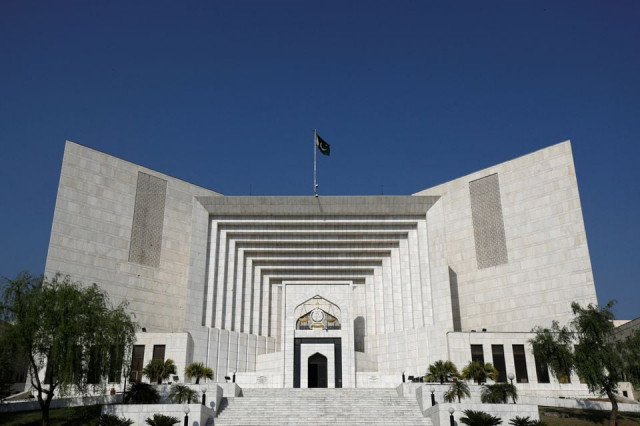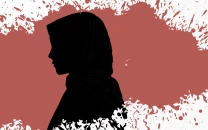SC bars PM from appointing judges in G-B
Court issues notice to judges appointed in G-B Supreme Appellate Court

The Supreme Court barred Prime Minister Shehbaz Sharif from appointing judges in Gilgit-Baltistan (G-B), while issuing notices to the judges already appointed in the G-B Supreme Appellate Court on Wednesday.
A three-judge bench of the apex court led by Justice Ijazul Ahsan took up the petition filed by the G-B chief minister against the appointment of judges by Prime Minister Shehbaz Sharif.
In September last year, Prime Minister Shehbaz Sharif gave an extension to three judges of the G-B Chief Court, following a summary moved by G-B Governor Syed Mahdi Shah.
However, the summary was initiated without consulting the chief minister.
In this regard, the chief minister filed a petition through senior lawyer Makhdoom Ali Khan against the move, making the federal government, G-B governor, and the newly-appointed Chief Court Judge Javed Ahmed respondents.
On the last hearing of the case on February 21, the bench allowed the petitioner to amend the petition, challenging the appointment of Supreme Appellate Court Chief Judge Sardar Shamim Khan.
Also read: SC issues notices in G-B CM's plea
During the hearing, additional attorney general sought one week time to file a detailed reply.
However, Makhdoom Ali Khan, the lawyer of the petitioner, opposed the request. He said that the case had been pending in court, yet judges were being appointed.
Justice Ahsan asked the additional attorney general that who appointed judges in GB? To which, he replied that the appointments were made by the PM of Pakistan.
Justice Ahsan said that it makes no difference, if there were no appointments for a couple of weeks.
Sitting on the bench, Sayyed Mazahar Ali Akbar Naqvi asked whether the chief minister's advice was necessary in the appointment of judges. The additional attorney general replied that he would give a detailed argument on that point.
Justice Ahsan also said that the legal status of giving notice to the judges, who had taken charges, would be determined on the next hearing of the case. However, Justice Naqvi said that issuing notices to the judges would not be appropriate.
Later, the court issued a stay order on the appointments until the judgment of the case and issued notices to the judges appointed in the GB Supreme Appellate Court through the registrar.
As per the details, the hearing was adjourned till March 15.
In a separate case, the three-member bench, led by Justice Ahsan, sought response of the Sindh Excise and Taxation Department regarding the recruitment to the vacant posts in 2008.
During the hearing, Justice Ahsan asked that when there was a ban on the appointments, how the new recruitments were made, while those who completed the process of interview, test and other stages in 2007 were not appointed.
The excise secretary informed the court that the ban on recruitment was lifted in 2008. However, Justice Ahsan pointed out that those who qualified in 2007, were not recruited in 2008. He asked whether the ban was lifted to recruit the favourites?
Justice Ahsan further asked about the number of vacant posts in Sindh Excise and Taxation department and sought the relevant record from the department. Later the court adjourned further hearing of the case for an indefinite period.
The counsel for the petitioners informed the court that the Sindh High Court (SHC) had ordered the appointment of those who had qualified in 2007 in 2011.
The Sindh government's petition against the SHC decision is pending in the apex court for the last 12 years.



















COMMENTS
Comments are moderated and generally will be posted if they are on-topic and not abusive.
For more information, please see our Comments FAQ